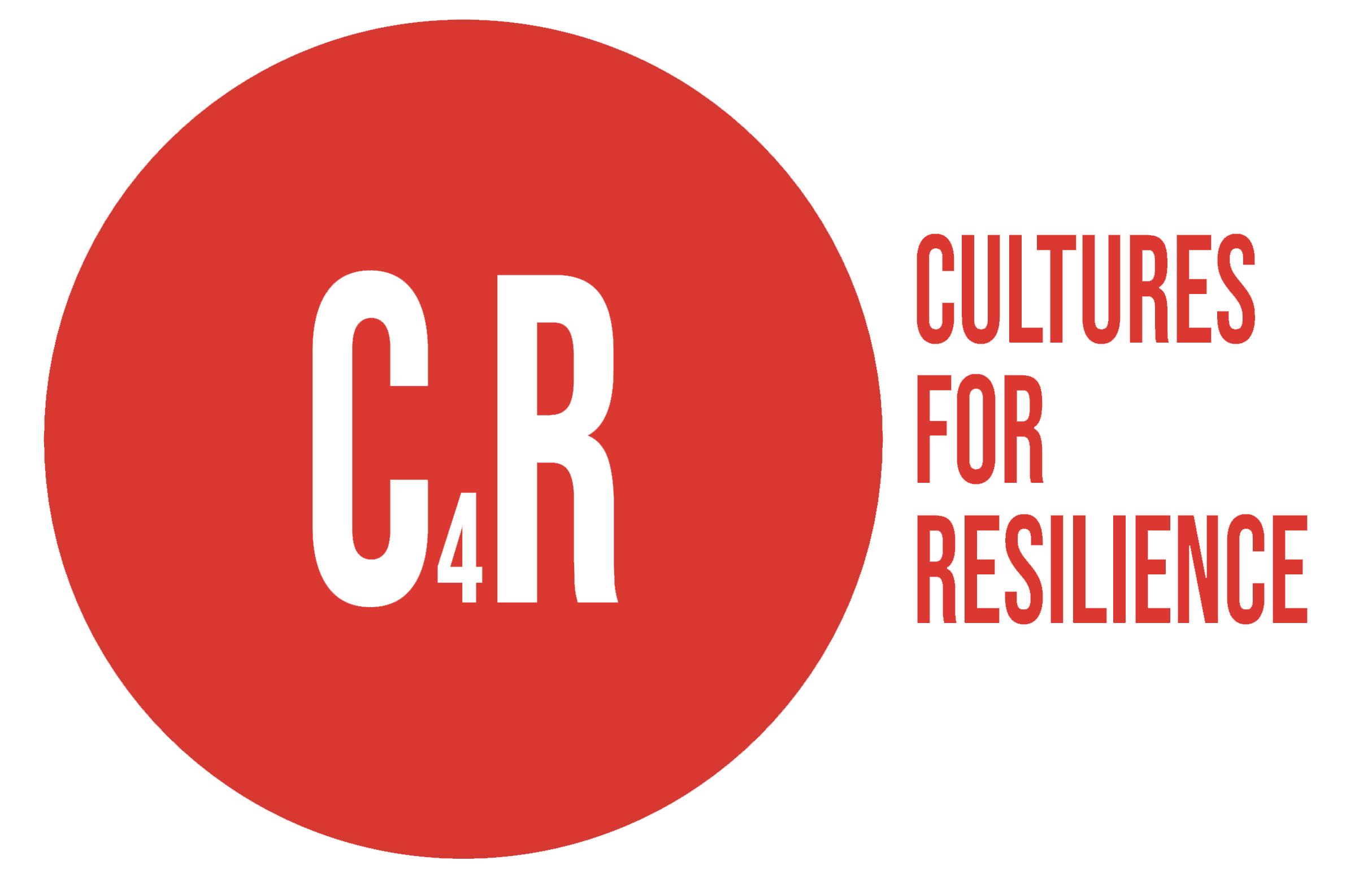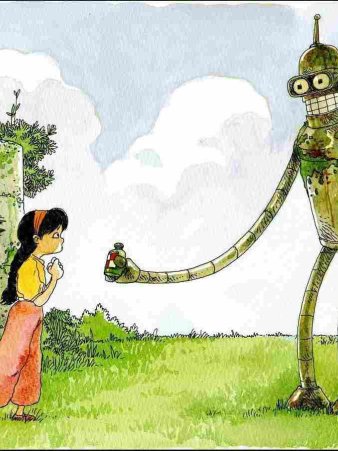C.I.R.C.E. develops an educative model to criticize what we call “Technologies of Domination”. Our approach is based on experiential learning to reflect on relationships with digital tools, especially the mass digital tools that people use as “natural” part of life.
Hacker Pedagogy: experiential workshop on (digital) awareness
For experiential education in digital environments.
by C.I.R.C.E. - Centro Internazionale di Ricerca per le Convivialità Elettriche
First published in Italian: Carlo Milani, “Pedagogia hacker. I laboratori esperienziali di consapevolezza (digitale) di C.I.R.C.E.", in Andersen, n. 359 gen-feb 2019.
Rearranged for Germany: “Hacker Pädagogik: Ein experimenteller Workshop zu (digitaler) Awareness”, in Gai Dao No 98 Februar 2019, traslation by Mona Alona
In this workshop we elaborated a numbers of activities suitable for very different contexts: for teachers that want to get rid of the feeling of being relics of an analogic past; for parents scared of the risks of Internet; for kids fed up with the obsessive control of adults (which anyway are always busy with their digital tools, iperconnected and distracted); for activits oppressed by solutions given by the market; for scholars and researchers overhelmed with the need of self-promotion; for anyone who is not anymore satisfied with his/her own digital interactions.
In the workshops we use theatre and games; we work with images and imagination, we use digital device very rarely, we use our bodies very often. We leave the devices in the background as they change too fast, instead we focus on the relationships, the emotional reactions, the dynamics and the routines that we develop in our relationship with technology.
The aim is to activate reflective processes, to exercise a cross-eyed look with which the partecipants to the workshops can observe themselves and, at the same time, observe the technological environment that they inhabit. In this way, from a decentered perspective, they can learn to point out interactions, features, characteristics, glitches. In one word, they can learn about themselves in relationship with the world that surround them.
The observation of relational dynamics among persons and digital environments usually reveals basics which are common in every human being: on the other side it is always personal and unique because those relationals dynamics involves pasts, visions, enthusiasms, resistances, attitudes and representations of the individual and social universe that everyone inhabits. Therefore this work, that we call “exercises in metamorphosis”, it is a creative and poietic activity; partecipants are called to search for their own digital ecology, their own way to live with the machines. It is a hard task but, as we have heard often, freedom (and meaning) are not “for free”. And, mostly important, we cannot know how everyone will conquer his/her own freedom.
There are games and games…
In C.I.R.C.E.‘s workshops we play a lot. It may happen that to reflect on your own approach to technology, to recognize the “glasses” you wear when you look at it, you may find yourself engaged in an intergalactic war between the planet of the Engineers, the planet of the Geeks, the one of the Mystics and the Jurassic planet. To explore the different digital images you may use masks, lights, music; to share emotions, desires, bonds you may create short theatrical scenes, usually surreal, often amusing, sometimes genial.
In C.I.R.C.E’s workshops we try to rediscover the genealogy of the apparently so innovative gestures that we carry out continuously in our digital mass interactions. “Ask Google” is not very different from “ask to the oracle”, an oracle that is technical instead of being magical. But, as the “third law” of Arthur C. Clarke states: “Any sufficiently advanced technology is indistinguishable from magic.” Hacker Pedagogy is a set of technics, tactits, tricks, exercises and games to learn togheter how to use, in a convivial manner, this kind of contemporary magic that we call technology. Not only digital technology.
In the workshop we often propose a kind of iniziation ritual to surge to the status of hacker and legitimate ourselves to explore. None is a natural born hacker, everyone can become a hacker, in collaboration with the others. To become a hacker you have to dig in your memory to remember that time that you behaved like those weirdos who relate to technology in a curious, proactive, uninhibited, iconoclast way. Tell your story to the other, choose your codename. This mark a breach: now you can’t go back, knowledge is transformation. Sure, with great power comes great responsibility. This is our pedagogy: learning to do things not only because we can do things but even because we take on the risk, the responsibility and the pleasure to do it. Too often we feel like the fox of Phaedrus’s fable, she was longing for grape but unable to reach it: I would like but I can’t, says the fox, and she makes up justifications to her powerlessness condition. In the same time, during our workshop, we meet people that confess: “I would like to use these amazing tools but I’m not able to do it, I can’t, I feel overhelmed…” Hacker Pedagogy’s way aims at the opposite direction: I could do it but I don’t want to do it. I could do this and that because I developed the necessary skills togheter with my peers, I have the power to do things but I won’t do anyting if I’m not willing to do it. We don’t want to be forced, guided, coerced by devices that manipolate us.
For kids and teens it’s very easy to identify with this “counter-cultural” role: hackers are people that treasured their own puer ludens. To bring adults into the right mood requires more time but when they realize that technology is much more than just digital devices and that in their own life they also have been geeks, then many worlds open up for them. The “change” for adults happens when they realize that their analogic skills may result very useful even in digital environment.
The game in C.I.R.C.E. workshop is different from those games that are increasingly hitting our everyday life. Today we play at the supermarket collecting “strawberry points”, we play online to obtain privileges, status, to gain points and digital coins. We are rewarded for our “good deeds”, for the tips off we obtained reporting wrongdoing or rudeness. Maybe we are going toward a society that will be governed through games: the game of cleaning, the game of public order, the game of jobs. Maybe it will all be on a platform managed by the government of the moment, in a more or less despotic manner, maybe with the help of the most popular multinational companies. Maybe we are running towards a society totally gamified where it will be nice to stick to the protocols, it will be satisfying because we will dope ourselves with dopamine, bursts of pleasure directly in our brains. There will be no need of ethic or aestetich and politics will be an ancient memory: to adapt to pure conformism of procedures elaborated “for our good” by someone else will be enough. Everyone will be a not thinking gear of the contemporary Megamachines, new incarnation of the classic Megamachine discovered across the whole history of humanity by Lewis Mumford. Artificial Intelligences for Human Idiocy managed by Tecnocratic Governances.
With our hacker games we like to unmask these games made of compulsory automatism. We try to understand the social, political, psicological implications; we try to de-program ourselves from the automatism that the games of domination infiltrate under our skin. One of our favourite activity is to look for the rules of the “Facebook game” and the rules of the magic world of the like-cracy. Or the rules of the Instagram game. Snapchat game… or of the next platform.
The method of C.I.R.C.E. is therefore a declaration of intents: we play to free the game, to retrieve its visionary and revolutionary dimension, to rediscover its essential features of free, open, creative gesture. We don’t use the game as a “nice” educative tool to swallow the bitter pill of knowledge without getting bored. We use the game to take a firm stand: to abandon the (confortable) stasis of the standard procedures and to choose the (hard) skill to imagine, subvert, exercise our power in metamorphosis. A game with an intrinsic reward: the prize is us, reconquered.
Nocturnal Setting vs. Total Transparency
The setting that we organize to develop this kind of experience has characteristics that are totally the opposite of those of the spaces of commercial social networks. These platforms show off the rule of the “much”, they are the place of the confessional, of the proliferation of emotional pornography, the space where every intimacy should be brought to light, a place where we are constantly evaluated. In our experiential workshop we prefer to be a small group: we take care of each other so that there will be no stage but an entity that protect and sustain, a space where is not mandatory to say everything, the secretum is respected. The exposition of emotions is no more about “showing the awkward that become exciting” but it’s a dancing body, aware, selfdetermined. In our workshops kids can talk without being listened by their parents, parents are without kids. In a second moment they meet each other, if they want, to communicate in a not evalutative environment, without likes, hearts and stars. Without grades. We love nocturnal settings, in the dim light it’s possible to play with our masks, we can loosen the burden of iper-consistency and legitimate ourselves for being multiple, mongrel, fragmented. To activate an authentic comunication as leaders of the workshop we have to be authentic. We experimented many times that collusive dynamics lower as much as we are ready to transpire our contradictions, our wounds, our lack of linearity. The lesson of Circe the sorceress is that knowledge is transformation, sometimes even painful: “Circe’s methamorphosis say that knowledge is comparable to affects” as Samir Boumediene reminds us. So the learning environment that we propose it’s a counter-proposal too, another possible way to relate to each other and to explore the world, an educational setting that represents the radicality of a political vision.
Bibliography:
Samir Boumediene, La Colonisation du savoir. Une histoire des plantes médicinales du Nouveau Monde, 1492-1750, Les editions du monde à faire, 2016 danah boyd, It’s complicated : the social lives of networked teens, Yale University Press, 2015 (Free download https://archive.org/details/ItsComplicatedSocialLivesOfNetworkedTeens) Johan Huizinga, Homo Ludens: A Study of the Play-Element in Culture, Routledge, 1949 (1938) (Free download http://art.yale.edu/file_columns/0000/1474/homo_ludens_johan_huizinga_routledge_1949_.pdf) Ippolita, Tecnologie del dominio, Meltemi, Milano, 2017 Lewis Mumford, The Myth of the Machine (Vol. II): The Pentagon of Power, Harcourt, Brace Jovanovich, New York, 1971 Piergiorgio Reggio, Il quarto sapere: guida all’apprendimento esperienziale, Carocci, Roma, 2010 Agnese Trocchi, Internet, mon amour. Cronache prima del crollo di ieri, Ledizioni, Milano, 2019

